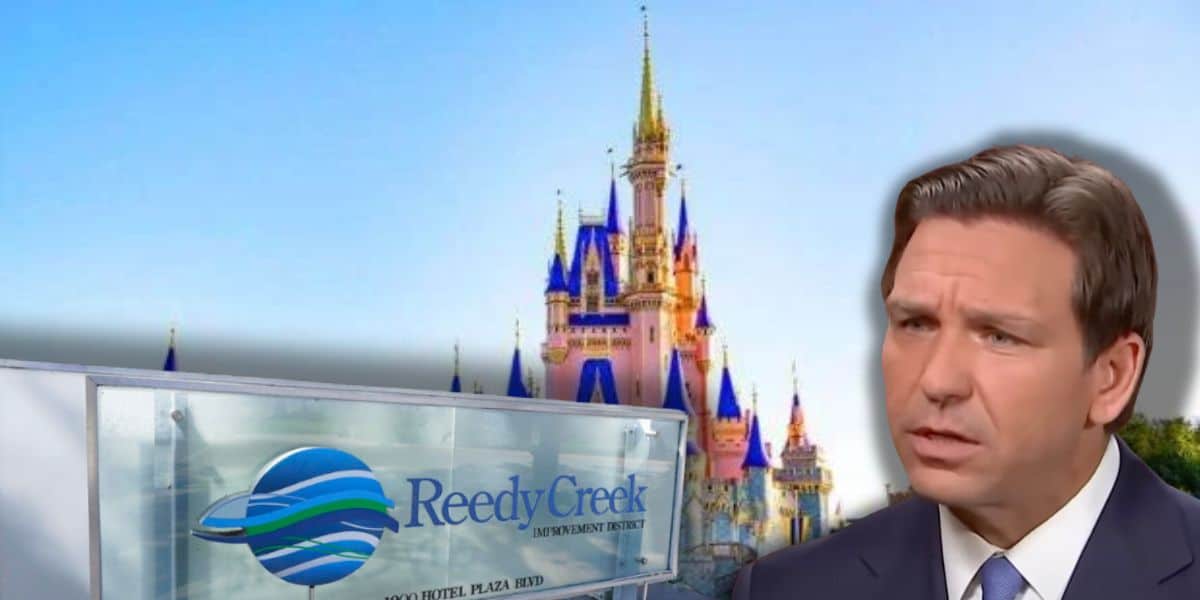Professor Richard Foglesong is a world-renowned scholar of the history of Walt Disney World and the author of Married to the Mouse: Walt Disney World and Orlando, the definitive work on the history of the complicated relationship between the iconic theme park, the former Reedy Creek Improvement District, and the state of Florida.

Professor Foglesang was generous enough to grant Inside the Magic an exclusive interview to discuss the recent conflicts between the Walt Disney Company, the Central Florida Tourism Oversight District (CFTOD), and Governor Ron DeSantis.
This interview has been edited for length and clarity.
Firstly, thank you for speaking with us regarding the Walt Disney Company’s history in Central Florida, Professor Foglesong. How did you first come to research the company’s entanglement with the state and the creation of the former Reedy Creek Improvement District?
When I came to Orlando in the mid-1980s to teach at Rollins College, I was intrigued to learn that Disney had its own private government. I subsequently dubbed it a Vatican with Mouse Ears. As a political scientist and urban historian, I was curious how that came about, how Disney used their powers, and whether they abused them. I’m now writing a sequel, Divorcing the Mouse: DeSantis vs. Disney.
Until recently, the State of Florida and Disney appeared to have a close relationship, which has been derailed by conflict with Governor Ron DeSantis. What do you think of Bob Chapek and Bob Iger’s handling of the situation?
But for DeSantis’ actions — in proposing the so-called “Don’t Say Gay” bill and attacking Disney for criticizing it—Chapek might have ended his Disney career unblemished. He failed to manage the politics, however. Iger, on the other hand, is better suited to that task.

Related: You Better Watch Out — Spending Christmas Day at Disney World
The former Reedy Creek Improvement District has been accused of corporate cronyism, and the current Central Florida Tourism Oversight District allegedly has the same issues and has been accused of incompetency. Can you comment?
I don’t accuse Disney of “corporate cronyism” by that name in my book, Married to the Mouse. I do, however, write extensively about their excessive powers and exemptions, and, in particular, their fear of having real residents who can vote that deters them from building affordable housing. Nor, by the way, do I say they are “too woke.” To the contrary, Disney’s business success compared with DeSantis’ flagging presidential campaign suggests that they know their market better than he knows his.
A recent 80-page report commissioned by the CFTOD alleges that Disney spent decades effectively “bribing” Reedy Creek officials with free annual passes, discounts, and the like. What are your thoughts?
That’s a misnomer in my view. My sense is that Reedy Creek employees, like park employees, are intrinsic fans of Disney fare. They don’t need to be bribed to be that way. Disney’s biggest critics have been the Reedy Creek firefighters, who endorsed DeSantis and supported his district takeover. Yet they were the first to complain when their annual passes were withdrawn.

Said report also uses significant material from your book, Married to the Mouse. Does it represent your work in the context you intended?
No. Virtually all of the factual information used in the report is drawn from my work or from authors citing my book. Others have not done the extensive interviews that I did, among other reasons because key sources are now deceased. Nor have they gained access to the Disney archives in Burbank, as I was fortunate enough to do. As stated above, crony capitalism per se is not my complaint.
Over the decades, the Walt Disney World Resort has become a huge part of the Central Florida economy. Do you think the current political and legal battles might affect that?
Very obviously, Disney World is too dug-in to leave. What we should worry about is that the company will slow its reinvestment in the Orlando market. That matters bigly because 82% of the tourists who come to Central Florida have come before. We need reinvestment to create innovation to keep them coming back.
Related: Aggressor in Viral Disney World Line Fight Issues Statement
Reedy Creek was originally chartered as part of Walt Disney’s plan for “Progress City,” a futuristic planned city. What do you think of how the district changed over the decades?
As I know from my research at the Disney archives, the Disney Co. never intended to build a City of Tomorrow where 20,000 people would live and work and play, as Walt famously said in the so-called Epcot film, aired in 1967. It was always a come-on to gain state approval of the Reedy Creek special-purpose government. That’s my biggest and most fervent criticism of their Florida Project.

And finally, where do you see the conflict between the CFTOD and Disney leading?
I have no idea how the lawsuits will end. But I have some faith in politics as a method of problem solving. Here I mean politics in the best sense of the word—bargaining, negotiation, and yes, head butting.
Disney will outlast DeSantis; his successor will make concessions to earn peace; CFTOD will learn the need to work w[ith] Disney, which they don’t presently do; and Disney, under pressure, will give way on affordable housing, impact fees, mass transit, and more. In the end, that’s what I see. All because not doing so is self-defeating.
How do you think the conflict between Disney and the CFTOD will be resolved? Let’s hear your thoughts in the comments below!
